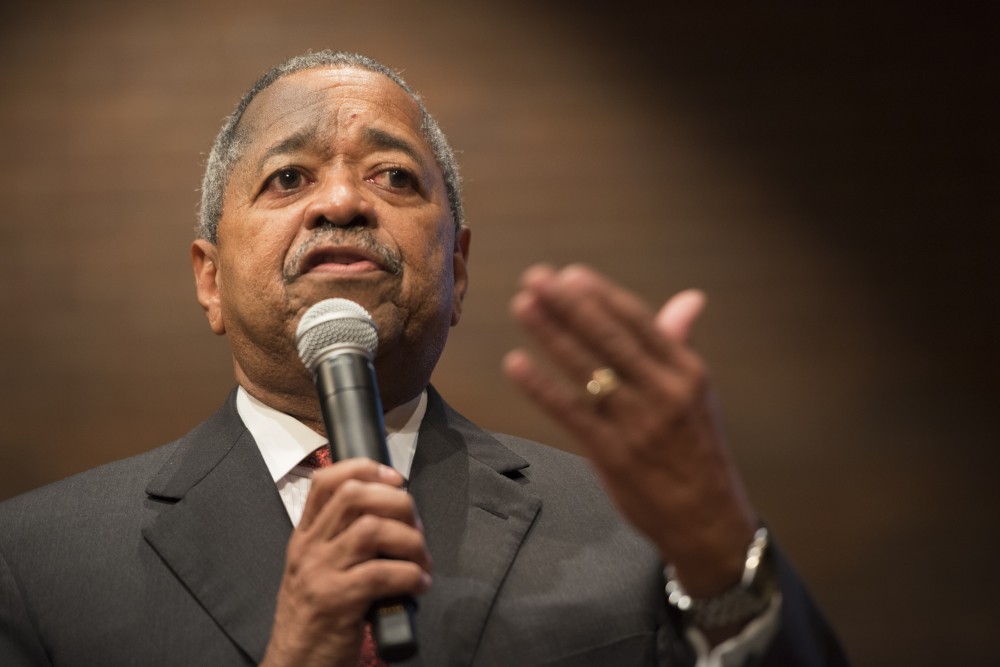The University of Minnesota Senate held its first meeting of the academic year Thursday, where it hosted the search firm recently selected to guide the University’s presidential search.
The University chose AGB Search to help recruit and vet presidential candidates after discontinuing its partnership with Storbeck/Pimentel and Associates last week. Members of AGB Search presented to the senate, providing the opportunity for faculty, staff and students to ask questions and provide input on the search process.

Rod McDavis, the managing principal at AGB Search, stressed his commitment to the University.
“The University of Minnesota matters … this presidency matters,” McDavis said at the meeting, who previously served as the president of Ohio University. “We are excited, delighted [and] anxious to get started, to work with you and the fine leadership of the fine University to find the best person to serve as your next president.”
Storbeck/Pimentel was replaced last week following the firm’s decision to take on Michigan State University’s presidential search, which many University officials viewed as a conflict of interest, according to a University press release.
AGB Search typically conducts around 80 searches per year for higher education executives, such as presidents and provosts, at institutions across the country, McDavis said at the meeting. The firm is currently involved in 25 searches, including at least nine presidential searches.
However, McDavis said the firm will not be conducting any other presidential searches for schools in the Association of American Universities – research institutions that are similar to the University and could directly compete for candidates.
“Our focus is on the University of Minnesota … you have our total undivided attention,” McDavis said. “This is where we are. This is where we want to be.”
Laura Bloomberg, vice chair of the presidential search committee, said the committee met with AGB earlier in the week to ensure there would be no conflicts.
“We have all kinds of agreements and all kinds of protections put into place and [we] have had very candid conversations about that,” Bloomberg said at the meeting.
Senators asked McDavis about a variety of issues, including how the firm plans to find candidates who reflect diversity.
Jonathan Sachs, a professor of biochemical engineering and member of the senate, pointed out that none of University’s 16 presidents have been women or underrepresented minorities.
McDavis echoed the concern while emphasizing the search firm is only involved in recruiting candidates, not selecting them.
“It has come to us from the [presidential] search committee … from the regents … from the other folks in leadership roles at the University of Minnesota — you want a diverse pool of candidates,” McDavis said. “We’re going to deliver that.”
Occupational therapy professor and senate member Leann Shore raised concerns about the vetting of candidates.
“I think it’s pretty evident … that vetting of individuals taking positions cannot be something as simple as a criminal background search,” she said at the meeting. “This is going to be extremely important to this process.”
Some senators also raised concerns about staff, students and members across the five University system campuses will be involved in the ongoing search process.
Amy Pittenger, vice chair of the Faculty Consultative Committee, said the senate’s feedback is useful to the new search firm.
“The comments … should help guide [the firm] with the candidates they’re recruiting and speaking to,” Pittenger said.








